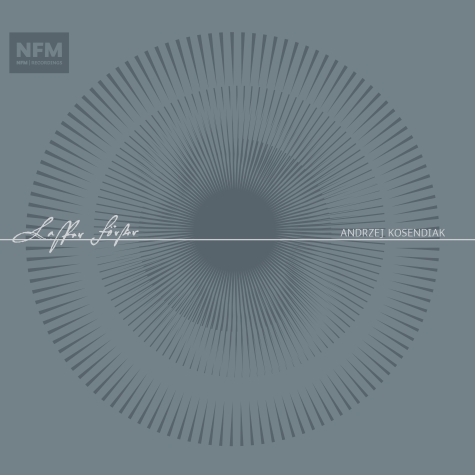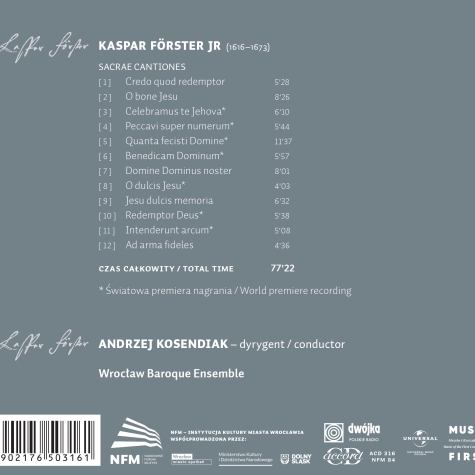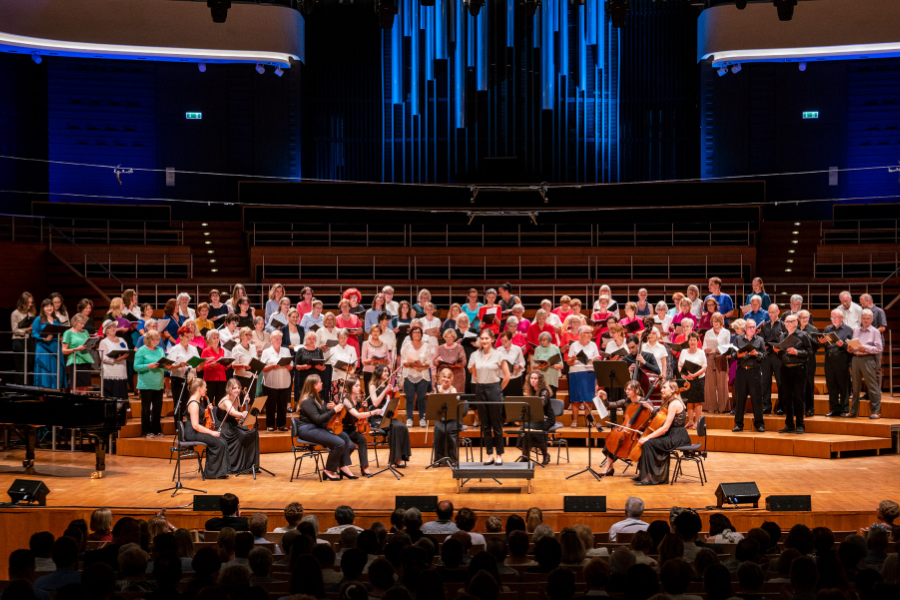Kaspar Förster
The thirteenth album released as part of the Music First. Music of the Polish-Lithuanian Commonwealth series. A monographic CD devoted to the work of Kaspar Förster, one of the most interesting artists of the 17th century. The recording contains several church concertos selected from all of the composer’s surviving works; some of them were recorded for the first time.
Album premiere: September 15, 2023
Publisher: National Forum of Music, CD Accord
Performers:
Andrzej Kosendiak - conductor
Wrocław Baroque Ensemble
If we looked at Kaspar Förster Jr from today’s perspective, we could confidently deem him a true European. He came from the royal Gdańsk, and his life related to numerous other cities, e.g. Warsaw, Rome, and Copenhagen. He also travelled a lot, so he had an opportunity to meet many great artists of that time, such as Marco Scacchi and Marcin Mielczewski (at the court of Ladislaus IV) or Giacomo Carissimi, who inspired him to compose dramatic works. These contacts, combined with Förster’s outstanding, versatile talent (apart from composing skills, he also had above-average vocal skills) resulted in a unique legacy that reflects the popular stylistic tendencies of the first half of the 17th century. This album contains a dozen or so concertato motets, which we have selected from among the composer’s surviving works. The name of the album, Sacrae cantiones, is also the title of a publication with his compositions published as part of the Fontes Musicae in Polonia series edited by Lars Berglund. The works that have survived to our times come from various sources and most likely did not form any cycle.
All Förster’s works are distinguished by clarity of form and melodiousness. The concertato motets presented on the album are exquisite, delightful gems. These are very well composed (especially in terms of vocals), small-sized pieces, in which sometimes sophisticated, but still simple means were used. In them, Förster shows himself as an experienced dramatist, as he skilfully uses the means of musical rhetoric to emphasize the emotions arising from the literary text, which at the same time ensures exceptional narrative continuity.
This is another release from the Music of the First Commonwealth series. The works of Kaspar Förster Jr fit perfectly into this series, as they are an important element of the Polish and European music scene of those times. The composer’s work also shows Europe of that time as a cultural and social community, in which Förster could easily cross geographical borders, despite fragmentation and various administrative divisions, finding employment and recognition wherever he appeared.
Andrzej Kosendiak












